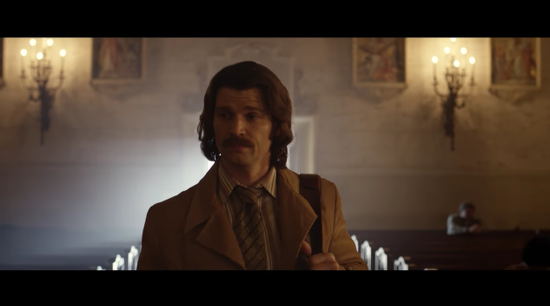This is a guest post written by Jon Fortenbury. He’s a filmmaker and writer in Austin, Texas who’s been published everywhere from The Atlantic to Playboy.
…
I still remember the day I bought The Case for Christ by Lee Strobel.
I was 18 and undergoing a crisis of faith two weeks before an evangelical church camp. So I rushed out to buy Strobel’s book, thinking, “If I don’t re-accept Jesus fast, I just wasted $300 on this camp.” I read it quickly, eager to find reasons to maintain belief, and the historical arguments for the resurrection of Jesus presented in the book convinced me. But seven years later, in 2012, I found more compelling arguments against Christianity and deconverted, much to the disappointment of many friends and family members.
So when I saw they turned the book into a film, I knew I had to see it, if for no other reason than to hate-watch it. But I also wanted to know if the adaptation was done well. And, to my surprise, it was… just not in the ways the filmmakers might have hoped.
The film is based on the real-life story of Strobel (played by Mike Vogel), who in the 1980s was a Chicago Tribune investigative journalist and atheist. One night, while out to dinner with his wife Leslie (played by Erika Christensen) and their young daughter, the girl begins to choke on a piece of candy. A nurse (played by L. Scott Caldwell) saves her life, which Leslie interprets as a non-coincidence, leading her to become a Christian just like the nurse. This angers Lee, so he sets off to disprove Christianity, interviewing a series of religious apologists, and… well, it’s called “The Case for Christ,” so you can guess the conclusion he reaches.

Some of the arguments for Christianity he comes across include:
- Jesus definitely died on the cross because Roman crucifixion was brutal.
- The accounts of Jesus’ tomb being found empty by women are true because women’s testimony held no validity back then, so they wouldn’t have lied about that.
- Jesus’ followers must have seen the resurrected Jesus because they were willing to die for their beliefs — which is different from religious people dying for their beliefs today because Jesus’ followers were in a position to know for sure if Jesus rose from the dead or not.
- There were over 500 people reported to have seen Jesus after his death, and they couldn’t have hallucinated the resurrection because a mass hallucination isn’t possible.
The film does a fine job of presenting these arguments, but the arguments themselves are ultimately flawed. Even if you grant that Jesus died by crucifixion and that women found an empty tomb, it doesn’t necessarily mean the most probable explanation is that Jesus rose from the dead.
What’s more probable: Romans not giving Jesus a proper burial (because they often didn’t for the crucified), women discovering an empty tomb when they thought Jesus was in it, and people having personal visions of Jesus (which happens frequently to people in mourning)… or someone rising from the dead, which has never been done in the history of humankind?
The former option just makes so much more sense.
But if you remove the religious debate from the movie — which is like asking viewers to ignore the part of Titanic where the ship sinks — it’s not bad. The acting is believable, the writing is smart, and the production value is high (which can’t be said about most Christian films). The sub-plots, which show Strobel’s flawed relationship with his father and a court case of a shot cop, felt a little forced, but they added layers to the film that made it more enjoyable to watch.
There was another concern with the storyline, though: It was hard to discern Strobel’s motives. Why was he so mad that his wife became a Christian? In the film, she seemed more or less the same person. We didn’t see any real consequences to their marriage that would justify his rage-fueled journey to disprove Christianity. Her motives for wanting him to become Christian — “I’m on a journey to the most amazing place I’ve ever been and I can’t take you” — might be convincing and endearing to many, but his motives weren’t explained in any sort of depth like they were in his book, leaving me less invested in him disproving Christianity to his wife.
If anything, the film will leave viewers not familiar with the Jesus debate with a lot of questions they’ll want to explore for themselves. That’s not a bad thing, since both Strobel and his atheist critics are fairly confident that a thorough investigation will end with their side coming out on top. And the Christian arguments are packaged in an at-times moving narrative about a married couple afraid to lose each other. It won’t beat you over the head like God’s Not Dead, but it won’t leave atheists with a changed mind either.




It’s Moving Day for the Friendly ..."
It’s Moving Day for the Friendly ..."
It’s Moving Day for the Friendly ..."
It’s Moving Day for the Friendly ..."